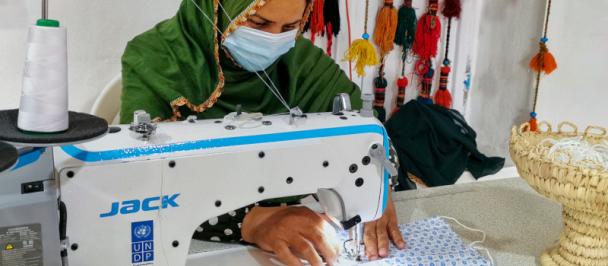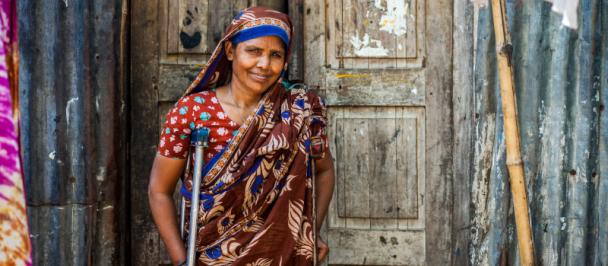The world is facing a biodiversity crisis. We have lost more than 60 percent of species populations in the last 50 years, and, if we do nothing, we stand to witness a million species going extinct within the next 30 years.
We need to understand, here and now, that this is a critical issue for us and our planet.
From bees pollinating crops to forests protecting us from floods, the world’s leading nature scientists tell us that we humans are threatening one million species with extinction by destroying the very ecosystems that support our way of life. We have the power to stop these trends, but it will require a profound and rapid transformation of our economies, markets, policies, and behaviour.
The deadline
We have just ten years to the deadline for the Sustainable Development Goals and the UN has announced a ‘Decade of Action’. World leaders have committed to more than 100 voluntary undertakings to speed up progress on the goals, which we are still far from meeting.
It’s a ‘Super Year’ for nature but it’s also going to be a ‘Super Year’ for climate action. Actions for nature and climate are closely interlinked. Forest loss and degradation, along with damaging industrial agricultural practices, account for a quarter of greenhouse gas emissions.
Biodiversity loss is especially threatening for the 3.4 billion people who still struggle to meet basic needs, the three billion who depend on agriculture, forests and fisheries for their food and livelihoods, the three billion who don’t have enough water, and the two billion who will face natural disasters in the coming decade. None of the global challenges that we all must face—entrenched poverty, deprivation, mass migration, conflict—can be solved without protecting Earth.
Good news
But the good news is that investing in biodiversity and nature will not only heal our planet, it will create vibrant new economic opportunities. Biodiversity is a safety net for humanity, buffering us from the worst of climate change, and sustaining our health, well-being, and economies. Harnessing the power of nature for development is essential to secure the future health, security and a path out of poverty for billions of people.
This is a pivotal time for tackling our planetary crisis. During this ‘Super Year’ for biodiversity world leaders will develop a global strategic plan for biodiversity, agree to nature-related articles in the Paris Agreement, set a global ocean agenda, and launch a Decade of Action, including the Decade of Ecosystem Restoration, to be launched in 2021.
Five things we need to do
· We must position nature at the heart of sustainable development. We can no longer afford the false calculus of ‘environment versus economy’. Instead we must come up with development solutions that are good for both us and the planet.
· We must transform our economic systems, including by making biodiversity loss a material risk. We must divert our investments and subsidies away from activities that harm biodiversity and redirect them toward ones that place nature at the centre of development, such as forest and mangrove restoration, nature-based enterprises, and regenerative agriculture.
· We must transform our global food systems and infrastructure, two of the biggest causes of biodiversity loss and climate change. This requires nothing short of a systemic change in how countries finance, plan and regulate land use.
· We must ensure that global environmental agreements are sufficiently ambitious and integrated to truly tackle the crisis. We need a post-2020 biodiversity framework with bold targets, clearly linked to climate and sustainable development goals.
· We must protect and restore ecosystems and safeguard species populations. This means more—and better—conservation measures all around the world. It also means safeguarding the rights of indigenous communities, who live in or manage more than a third of remaining intact forests, which are home to 80 percent of remaining biodiversity.
This is the year when we must protect, restore and invest in biodiversity. Our future is at stake.
Learn more about UNDP’s work on ecosystems and biodiversity here.

 Locations
Locations




